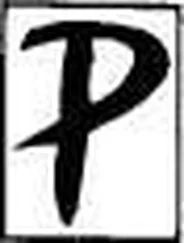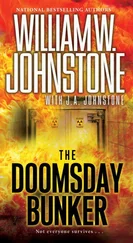Von Cairns turned up his whiskey bottle for another drink, but there was none left. And the way things were now, there was not likely to be any more.

Back in the BOQ, Lieutenant Phil Patterson was contemplating his situation. He rarely reported to work now; General von Cairns had told him there was really no need for him to come in. He had nothing left to read, and nothing left to do. There was no radio to listen to, no TV to watch. Newspapers and magazines were no longer being published.
How differently things had turned out from what he had imagined when, as a boy, he had dreams of going to West Point. He remembered that June day of graduation, the sense of accomplishment, and the pride he had in receiving his commission. Part of his dream had been to fly, and he fulfilled that as well, though it had now been over four months since last he flew.
He was frightened. Not the kind of fear one might get when his life is in imminent danger. There was, with that kind of fear, also a charge of adrenalin, an awareness of life, an excitement.
This fear was intense, mind-numbing, and paralyzing. He had no idea what was going to happen, but he knew it was going to be bad. Very bad. And worse, he knew there was absolutely nothing he could do about it.
He had been thinking about it for several days now, and had even made preparations. Today he was going to leave.
Lieutenant Patterson drove down to the Headquarters Building and went into General von Cairns’s office. He wasn’t going to ask the general if he could leave; he was going to tell him that he was going to leave. It wasn’t something he was proud of, but it was something he was going to do, and he knew that, realistically, there was nothing the general could do about it.
He saw that the general’s chair was turned around and, as he often did, the general was staring through the window at the empty parade ground outside. He had been doing that more and more lately. And drinking—Patterson saw the empty whiskey bottle on the desk, just above the open drawer. At one point he wondered if he should make some comment about the general’s drinking, being very subtle about it. But he was just a lieutenant, and such a thing wasn’t his place.
“General,” Patterson said. “General, sir, I’m sorry sir, I wanted to stay and do all I could, but, to be honest, I don’t think there is anything left here I can do anymore. In fact, I don’t think there is anything anyone can do. My mom is alone back in Arkansas, and I haven’t heard from her in two weeks. I’m worried about her, and I’d like to go home. If you want me to just take a leave, I will do so. But, the way things are now, well, I hope you understand.” Patterson paused, waiting for the general to turn around and reply.
“General?” Patterson said again.
When the general still didn’t turn around, Patterson walked around the desk.
“Sir?”
Patterson stepped up to the general’s chair, then gasped out loud. The general’s head was back against the headrest and lolling over to one side. In his hand was an Army-issue M9 pistol. There was a black hole in his forehead, but a surprising lack of blood.
“I guess I’ll just go,” Patterson said in a quiet voice.
As he left the general’s office and walked through the cavernous HQ building, he did not encounter a single soul.
His car was full of gasoline and he had two five-gallon cans in the trunk. He hoped that would be enough to get him to Blytheville, Arkansas.
Fort Rucker—Friday, July 20
Jake was playing a game of solitaire when the phone rang.
“EFT, Major Lantz.”
“Major, this is Mr. Tadlock.”
“Yes, Chief, what can I do for you?”
“I’m calling you from the General’s office.”
“Okay, put him on.”
“Uh, no sir, I can’t do that.”
“Oh?”
“The reason I’m calling is I wonder if you could come over here.”
“I guess I can. I hate to waste the gas, but if the general needs me for some reason . . .”
“It isn’t the general who needs you, Major. I need you. Or at least, I need your advice. The general is dead.”
“What?”
“Looks like he committed suicide. He’s sittin’ here in his chair and there’s a pistol in his lap.”
“Where’s Lieutenant Patterson?”
“I don’t know, Major. He wasn’t here when I got here. Fact is, there’s not a soul in the whole damn building.”
“I’ll be there as quick as I can.”
Jake hung up the phone, then called out into the outer office. “Sergeant Major, are you out there?”
“Yes, sir,” Clay answered.
Jake walked out into the outer office and saw Clay just getting up from his desk.
“I’d like you to come to the general’s office with me if you would,” he said.
“Damn! He hasn’t caught on about the fuel requisitions, has he?”
“No. Ed Tadlock just called. The general is dead, Clay. Tadlock said he shot himself.”
“I’ll be damned. I thought von Cairns had more sand than that.”
Chief Warrant Officer-3 Edward Tadlock was waiting just outside the door to the Post Headquarters building when Jake and Clay arrived in Jake’s Jeep SUV.
“I waited out here,” Tadlock said. “I don’t mind telling you, it’s creepy as hell in there.”
“How do you know it was a suicide?” Jake asked. “Did he leave a note?”
“No, there was no note. But the pistol is still in his hand.”
“Let’s have a look.”
The three men went back inside the building, which, as Tadlock had said, was completely deserted.
“I’m taking off,” Tadlock said. “I’m going to Missouri. I own a small farm there, I’m going back to work it. My wife and kids are already there, waiting for me.”
“Do you have enough fuel to make it all the way to Missouri?”
“I’m driving a diesel, and running it on jet fuel. I bought thirty gallons extra from someone. I didn’t ask any questions as to where he got it.”
“Well, good luck to you, Chief,” Jake said.
When they stepped into the general’s office, he was still sitting in his swivel chair, facing the window that looked out over the parade ground.
“I left him just the way I found him,” Tadlock said.
Jake walked around to get a closer look at him. He shook his head. “Damn,” he said. “He was a good man. I hate to see this.”
“Ohmshidi killed him,” Tadlock said. “Yeah, von Cairns may have pulled the trigger, but Ohmshidi killed him.”
“I can’t argue with that,” Jake said.
“So now the question is, what do we do with him?”
“Does he have any next of kin?” Clay asked.
“He’s divorced, I know that,” Tadlock said.
“He has a daughter somewhere,” Jake said. “If we looked through all his things, we could probably find out where she is. But then what? The way things are now, what could she do with him?”
“We can’t leave him here,” Tadlock said.
“Let’s bury him out there on the parade ground, under the flagpole,” Clay suggested.
“Damn good idea, Sergeant Major, damn good idea,” Tadlock said.
Clay went to the general’s quarters to get his dress blue uniform and he and Jake dressed the general, including all his medals. While they were doing that, Tadlock rounded up as many officers and men as he could, including seven men who would form a firing squadron to render last honors, and one bandsman who agreed to play taps.
Now the general lay in a main-rotor shipping case alongside a grave that three of the EM had dug. There were over fifty men and women present, in uniform, and in formation. The general was lowered into the grave, and Jake nodded at the firing team. The seven soldiers raised their rifles to their shoulders.
Читать дальше










